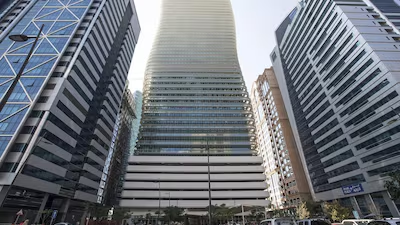What Every Abu Dhabi Landlord Needs to Know for 2025
Abu Dhabi’s real estate market is constantly evolving, and 2025 has brought significant changes designed to enhance transparency and stability. For landlords, staying on top of these updates isn’t just a matter of compliance, it’s a key to protecting your investment and fostering positive tenant relationships. Here’s a breakdown of the essential legal and regulatory changes you need to be aware of.
1. The Rise of Madhmoun: Mandatory Listing Verification
One of the most impactful changes is the launch of Madhmoun, an official Multiple Listing Service (MLS) platform. This government-mandated system requires every property listed for rent or sale to have a unique verification code.
- Why it matters: Madhmoun’s primary purpose is to combat fraudulent listings and misinformation. As a landlord, this ensures that your property is represented accurately and professionally. You’ll work with licensed agents who can provide a verified listing, giving prospective tenants confidence that your property is legitimate and available.
2. The 5% Rent Cap and Tawtheeq
Rent increases have been a hot topic, and Abu Dhabi has reintroduced a clear cap to protect tenants and stabilize the market.
- The Rule: The annual rent increase for existing tenancy contracts is capped at 5%. This cap is intended to prevent sudden, dramatic price hikes.
- Tawtheeq is still essential: All tenancy contracts must be officially registered and attested through the Tawtheeq system. This legalizes the contract and is a prerequisite for connecting utilities and other government services. A properly registered Tawtheeq contract provides a clear record that helps resolve any disputes about rent increases or other contractual issues.
3. Resolving Disputes with Tasweya
Previously, resolving landlord-tenant disputes could be a complex process. The Tasweya Dispute Settlement Centre, part of the Abu Dhabi Real Estate Centre (ADREC), offers a streamlined path to resolution.
- How it works: Tasweya provides a neutral and efficient platform for mediating conflicts. Landlords and tenants can submit their disputes, and the center works to reach an amicable settlement. This system is designed to provide faster outcomes, enhance investor confidence, and reduce the need for court litigation.
4. A New Era of Professionalism: Brokerage Licenses
The new regulations place a stronger emphasis on professional conduct within the real estate sector. Brokers, agents, and property managers are now required to hold a valid Brokerage License Number (BLN).
- Your responsibility: Before you list your property with a real estate professional, you should always verify that they hold a valid BLN. This protects you from unlicensed individuals and ensures your property is managed and marketed by a qualified and accountable professional.
5. Jointly Owned Property Governance
New regulations also bring clearer rules for jointly owned properties, such as apartments and gated communities. These rules define the roles and responsibilities of developers, owners’ associations, and property managers, ensuring the long-term sustainability and quality of the property.
- What this means: You can expect more formal operational plans and regular maintenance reports, which collectively help preserve the value and integrity of your investment.
Final Thoughts
Navigating the real estate landscape in Abu Dhabi can be complex, but these new laws are ultimately designed to create a more transparent, stable, and professional market for everyone. By understanding and adhering to these key changes, you can ensure your properties are compliant and positioned for success in 2025 and beyond.







